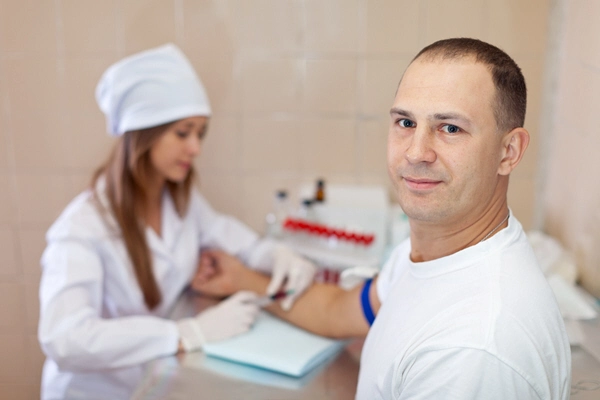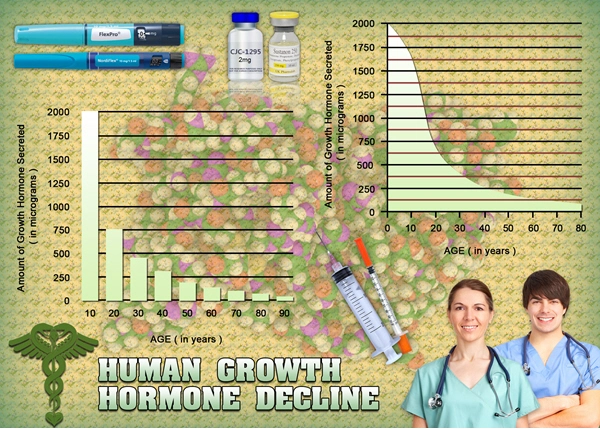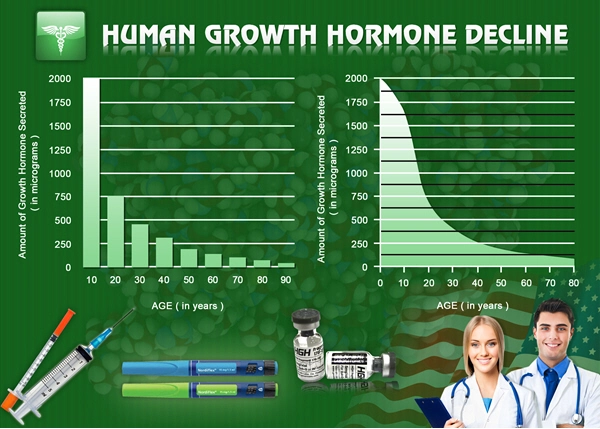Introduction to Testicular Health
Testicular health is a critical aspect of male well-being that often goes overlooked. As American males, understanding the anatomy, function, and common health issues related to the testicles is essential for maintaining overall health and preventing potential complications. This article aims to empower men with the knowledge and resources necessary to take proactive steps towards better testicular health.
Anatomy and Function of the Testicles
The testicles, or testes, are oval-shaped organs located in the scrotum, a sac of skin that hangs below the penis. These vital reproductive organs are responsible for producing sperm and the male hormone testosterone. The testicles are composed of numerous tiny tubes called seminiferous tubules, where sperm production occurs, and interstitial cells, which produce testosterone.
Testosterone plays a crucial role in the development of male secondary sexual characteristics, such as facial hair, deepening of the voice, and increased muscle mass. It also contributes to libido, bone density, and overall well-being. Maintaining optimal testicular function is essential for fertility and sexual health.
Common Testicular Health Issues
Several health conditions can affect the testicles, some of which require prompt medical attention. One of the most common issues is testicular torsion, a painful condition that occurs when the spermatic cord twists, cutting off blood supply to the testicle. This medical emergency requires immediate surgical intervention to prevent permanent damage.
Varicoceles, enlarged veins within the scrotum, are another common condition that can lead to discomfort and reduced fertility. Hydroceles, fluid-filled sacs surrounding the testicle, and epididymal cysts, fluid-filled sacs in the epididymis, are generally benign but may cause discomfort or cosmetic concerns.
Testicular cancer, although relatively rare, is the most common cancer in young men aged 15-35. Regular self-examinations and prompt medical attention for any lumps, swelling, or changes in the testicles are crucial for early detection and successful treatment.
Testicular Self-Examination and Health Literacy
Empowering American males with the knowledge and skills to perform regular testicular self-examinations is a vital step in promoting testicular health. The American Cancer Society recommends that men aged 15-55 perform a monthly self-exam to familiarize themselves with the normal size, shape, and consistency of their testicles.
During a self-exam, men should gently roll each testicle between the thumb and fingers, feeling for any lumps, swelling, or changes in size. It is normal for one testicle to be slightly larger than the other and for the epididymis, a soft, tube-like structure located behind the testicle, to be felt. Any unusual findings should be promptly discussed with a healthcare provider.
Health literacy, the ability to obtain, process, and understand basic health information, is essential for making informed decisions about testicular health. American males should seek out reliable sources of information, such as the American Urological Association and the National Institute of Diabetes and Digestive and Kidney Diseases, to stay informed about testicular health and related issues.
Promoting Testicular Health through Lifestyle Choices
In addition to regular self-examinations and health literacy, American males can take proactive steps to promote testicular health through lifestyle choices. Maintaining a healthy weight, engaging in regular physical activity, and avoiding tobacco use can help reduce the risk of developing testicular health issues.
Protecting the testicles from injury is also crucial. Wearing protective gear during sports and activities that pose a risk of impact to the groin area can help prevent trauma-related testicular problems. Additionally, practicing safe sex and getting regular STI screenings can help protect testicular health and overall sexual well-being.
Conclusion: Empowering American Males for Better Testicular Health
Testicular health is a vital aspect of male well-being that deserves attention and proactive care. By understanding the anatomy and function of the testicles, recognizing common health issues, performing regular self-examinations, and making informed lifestyle choices, American males can take control of their testicular health. Empowering men with the knowledge and resources necessary to prioritize testicular health is essential for promoting overall well-being and preventing potential complications.

- Navigating Life After Testicular Cancer: A Guide for American Male Survivors [Last Updated On: February 19th, 2025] [Originally Added On: February 19th, 2025]
- Routine Check-ups Crucial for American Men's Testicular Health and Early Cancer Detection [Last Updated On: March 17th, 2025] [Originally Added On: March 17th, 2025]
- Testicular Health: Essential Guide for American Males' Physical and Mental Well-being [Last Updated On: March 17th, 2025] [Originally Added On: March 17th, 2025]
- Economic Challenges of Testicular Cancer Treatment for American Males: Costs and Support [Last Updated On: March 17th, 2025] [Originally Added On: March 17th, 2025]
- Testicular Health's Impact on Prostate Wellness in American Men: A Scientific Insight [Last Updated On: March 19th, 2025] [Originally Added On: March 19th, 2025]
- Testicular Health and Male Infertility: Diagnosis, Treatment, and Supportive Care [Last Updated On: March 19th, 2025] [Originally Added On: March 19th, 2025]
- Exercise Enhances Testicular Health in American Males: A Comprehensive Review [Last Updated On: March 20th, 2025] [Originally Added On: March 20th, 2025]
- Understanding Testicular Pain: Causes, Diagnosis, and Treatment for American Men [Last Updated On: March 20th, 2025] [Originally Added On: March 20th, 2025]
- Stress Impact on Testicular Health: Insights for American Men [Last Updated On: March 21st, 2025] [Originally Added On: March 21st, 2025]
- Diabetes and Testicular Health: Impacts and Management Strategies for American Men [Last Updated On: March 21st, 2025] [Originally Added On: March 21st, 2025]
- Testicular Health and Cardiovascular Disease: A Critical Link for American Men [Last Updated On: March 21st, 2025] [Originally Added On: March 21st, 2025]
- Educating Young American Males on Testicular Health: Importance and Impact [Last Updated On: March 21st, 2025] [Originally Added On: March 21st, 2025]
- Smoking's Harmful Effects on Testicular Health in American Males: A Comprehensive Analysis [Last Updated On: March 21st, 2025] [Originally Added On: March 21st, 2025]
- Testicular Cancer Screening: Guidelines and Self-Exam Techniques for American Men [Last Updated On: March 21st, 2025] [Originally Added On: March 21st, 2025]
- Ultrasound: Revolutionizing Testicular Health Diagnosis in American Males [Last Updated On: March 22nd, 2025] [Originally Added On: March 22nd, 2025]
- Testicular Health and Autoimmune Disorders: Insights for American Men [Last Updated On: March 22nd, 2025] [Originally Added On: March 22nd, 2025]
- Anabolic Steroids: Risks and Impacts on American Men's Testicular Health [Last Updated On: March 22nd, 2025] [Originally Added On: March 22nd, 2025]
- Testicular Health and Hormone Therapy: Essential Insights for American Men [Last Updated On: March 22nd, 2025] [Originally Added On: March 22nd, 2025]
- Viral Infections and Testicular Health: Impacts on Fertility in American Males [Last Updated On: March 23rd, 2025] [Originally Added On: March 23rd, 2025]
- Sleep Quality's Impact on Testicular Health: A Vital Link for American Males [Last Updated On: March 24th, 2025] [Originally Added On: March 24th, 2025]
- Radiation Therapy's Impact on Testicular Health: Insights for American Males [Last Updated On: March 24th, 2025] [Originally Added On: March 24th, 2025]
- Community Support Enhances Testicular Health Awareness in American Males [Last Updated On: March 24th, 2025] [Originally Added On: March 24th, 2025]
- Occupational Hazards and Testicular Health: Risks, Prevention, and Screening for American Workers [Last Updated On: March 24th, 2025] [Originally Added On: March 24th, 2025]
- Overcoming Psychological Barriers to Testicular Health Care in American Males [Last Updated On: March 25th, 2025] [Originally Added On: March 25th, 2025]
- Illicit Drugs' Impact on Testicular Health: Risks and Prevention for American Men [Last Updated On: March 25th, 2025] [Originally Added On: March 25th, 2025]
- Genetic Counseling's Vital Role in Preventing Testicular Cancer: Latest Advances [Last Updated On: March 25th, 2025] [Originally Added On: March 25th, 2025]
- Testicular Health: Vital for Preventing Chronic Diseases in American Males [Last Updated On: March 25th, 2025] [Originally Added On: March 25th, 2025]
- Endocrine Disruptors' Impact on Testicular Health: Risks and Mitigation for American Males [Last Updated On: March 25th, 2025] [Originally Added On: March 25th, 2025]
- Testicular Health in Aging American Men: Hormones, Monitoring, and Treatment Options [Last Updated On: March 25th, 2025] [Originally Added On: March 25th, 2025]
- Nutrition's Vital Role in American Men's Testicular Health and Fertility [Last Updated On: March 25th, 2025] [Originally Added On: March 25th, 2025]
- Public Health Campaigns Boost Testicular Health Awareness and Self-Exams in American Men [Last Updated On: March 26th, 2025] [Originally Added On: March 26th, 2025]
- Testicular Health and Reproductive Rights: Empowering American Men [Last Updated On: March 26th, 2025] [Originally Added On: March 26th, 2025]
- Socioeconomic Factors Impacting Testicular Health Care Access in American Males [Last Updated On: March 26th, 2025] [Originally Added On: March 26th, 2025]
- Breaking Barriers: Enhancing Testicular Health Awareness and Support for American Males [Last Updated On: March 26th, 2025] [Originally Added On: March 26th, 2025]
- Chemotherapy's Impact on Testicular Health in American Male Cancer Survivors [Last Updated On: March 26th, 2025] [Originally Added On: March 26th, 2025]
- Testicular Health and Cancer: Essentials, Detection, and Life After Diagnosis [Last Updated On: March 26th, 2025] [Originally Added On: March 26th, 2025]
- Lifestyle Diseases and Testicular Health: Strategies for American Men [Last Updated On: March 27th, 2025] [Originally Added On: March 27th, 2025]
- Antioxidants: Key to Enhancing Testicular Health and Fertility in American Men [Last Updated On: March 27th, 2025] [Originally Added On: March 27th, 2025]
- Testicular Health: Understanding Functions, Conditions, and Educational Needs for American Males [Last Updated On: March 27th, 2025] [Originally Added On: March 27th, 2025]
- Exercise Impacts on Testicular Health: Insights for American Men [Last Updated On: March 27th, 2025] [Originally Added On: March 27th, 2025]
- Testicular Health's Psychological Impact on American Men's Body Image and Masculinity [Last Updated On: March 27th, 2025] [Originally Added On: March 27th, 2025]
- Alcohol's Impact on Testicular Health: Risks and Mitigation Strategies for Men [Last Updated On: March 27th, 2025] [Originally Added On: March 27th, 2025]
- Vitamins A, D, E, C, B, and Zinc: Essential for American Men's Testicular Health [Last Updated On: March 27th, 2025] [Originally Added On: March 27th, 2025]
- Testicular Health: Breaking Stigma, Promoting Self-Exams and Open Dialogue [Last Updated On: March 27th, 2025] [Originally Added On: March 27th, 2025]
- Environmental Impacts on Testicular Health: Awareness and Action for American Males [Last Updated On: March 27th, 2025] [Originally Added On: March 27th, 2025]
- Testicular Health and Immune Function: A Vital Connection for Male Wellness [Last Updated On: March 27th, 2025] [Originally Added On: March 27th, 2025]
- Heat Exposure and Testicular Health: Impacts and Strategies for American Men [Last Updated On: March 28th, 2025] [Originally Added On: March 28th, 2025]
- Support Groups: Vital for American Men with Testicular Cancer [Last Updated On: March 28th, 2025] [Originally Added On: March 28th, 2025]
- Modern Lifestyles and Their Impact on American Men's Testicular Health [Last Updated On: March 28th, 2025] [Originally Added On: March 28th, 2025]
- Telemedicine: Revolutionizing Testicular Health Services for American Men [Last Updated On: March 29th, 2025] [Originally Added On: March 29th, 2025]
- Managing Chronic Testicular Pain: Strategies and Prevention for Male Health [Last Updated On: March 29th, 2025] [Originally Added On: March 29th, 2025]
- Testicular Health: Cancer, Fertility, and Lifestyle Impact on American Males [Last Updated On: March 30th, 2025] [Originally Added On: March 30th, 2025]
- Testicular Health: Self-Exams, Cancer Awareness, and Preventive Lifestyle for American Males [Last Updated On: March 31st, 2025] [Originally Added On: March 31st, 2025]
- Herbal Supplements for Testicular Health: Benefits and Considerations for American Men [Last Updated On: April 2nd, 2025] [Originally Added On: April 2nd, 2025]
- Testicular Health and Mental Resilience: A Holistic Approach for American Men [Last Updated On: April 3rd, 2025] [Originally Added On: April 3rd, 2025]
- Antibiotics' Impact on Testicular Health: Risks and Strategies for American Men [Last Updated On: April 5th, 2025] [Originally Added On: April 5th, 2025]
- Testicular Health and Environmental Impact: A Call for Policy Change [Last Updated On: April 5th, 2025] [Originally Added On: April 5th, 2025]
- Promoting Testicular Health: Education, Self-Exams, and Public Health Initiatives for American Males [Last Updated On: April 6th, 2025] [Originally Added On: April 6th, 2025]
- Advancements in Testicular Health and Reproductive Technologies in the U.S. [Last Updated On: April 6th, 2025] [Originally Added On: April 6th, 2025]
- Pesticide Exposure and Testicular Health in American Men: A Growing Concern [Last Updated On: April 7th, 2025] [Originally Added On: April 7th, 2025]
- Mental Health Professionals' Vital Role in Enhancing Testicular Health Awareness Among American Men [Last Updated On: April 8th, 2025] [Originally Added On: April 8th, 2025]
- Heavy Metals' Impact on Testicular Health in American Men: Risks and Prevention [Last Updated On: April 8th, 2025] [Originally Added On: April 8th, 2025]
- Plastics' Chemical Impact on Testicular Health in American Men: A Comprehensive Analysis [Last Updated On: April 12th, 2025] [Originally Added On: April 12th, 2025]
- Physical Therapy's Vital Role in Managing Testicular Health Issues for American Men [Last Updated On: April 12th, 2025] [Originally Added On: April 12th, 2025]
- Enhancing Men's Health: Integrating Testicular Health into Workplace Wellness Programs [Last Updated On: April 13th, 2025] [Originally Added On: April 13th, 2025]
- Testicular Health: Science, Common Conditions, and U.S. Reproductive Policies for Men [Last Updated On: April 13th, 2025] [Originally Added On: April 13th, 2025]
- Testicular Health: Cancer Risks, Self-Exams, and Fertility for American Males [Last Updated On: April 15th, 2025] [Originally Added On: April 15th, 2025]
- Genetic Testing: Revolutionizing Testicular Health Management for American Men [Last Updated On: April 15th, 2025] [Originally Added On: April 15th, 2025]
- Air Pollution's Impact on American Men's Testicular Health: Emerging Research and Concerns [Last Updated On: April 15th, 2025] [Originally Added On: April 15th, 2025]
- Testicular Health Advocacy: Urgent Need for Policy Change and Public Awareness [Last Updated On: April 16th, 2025] [Originally Added On: April 16th, 2025]
- Testicular Health and Mental Well-being: A Holistic Guide for American Males [Last Updated On: April 16th, 2025] [Originally Added On: April 16th, 2025]
- Integrating Testicular and Mental Health Services for Holistic Male Care [Last Updated On: April 17th, 2025] [Originally Added On: April 17th, 2025]
- Educational Campaigns Boost Testicular Cancer Awareness and Early Detection in American Men [Last Updated On: April 18th, 2025] [Originally Added On: April 18th, 2025]
- Exercise Benefits for Testicular Health in American Men: A Comprehensive Guide [Last Updated On: April 18th, 2025] [Originally Added On: April 18th, 2025]
- Water Contaminants' Impact on Testicular Health: Risks and Mitigation Strategies [Last Updated On: April 18th, 2025] [Originally Added On: April 18th, 2025]
- Nutrition's Vital Role in American Males' Testicular Health and Function [Last Updated On: April 18th, 2025] [Originally Added On: April 18th, 2025]
- Environmental Pollutants and Testicular Health: An Environmental Justice Perspective [Last Updated On: April 21st, 2025] [Originally Added On: April 21st, 2025]
- Rising Testicular Cancer Trends and Early Detection in American Males [Last Updated On: April 21st, 2025] [Originally Added On: April 21st, 2025]
- Climate Change's Impact on American Men's Testicular Health: Risks and Mitigation [Last Updated On: April 21st, 2025] [Originally Added On: April 21st, 2025]
- Varicocele Treatment Efficacy: Impact on Testicular Health in American Males [Last Updated On: April 22nd, 2025] [Originally Added On: April 22nd, 2025]



List of USA state clinics - click a flag below for blood testing clinics.
Word Count: 648



















































